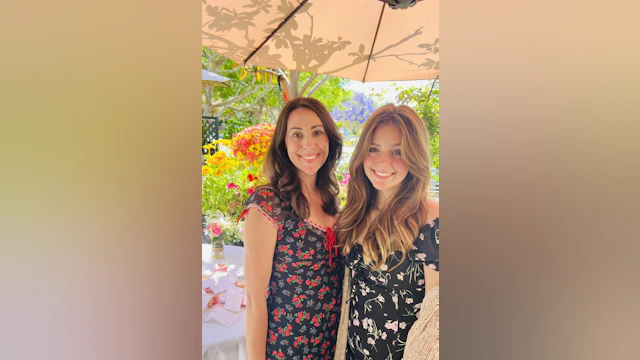My daughter, 13 at the time, seemed worried. When I asked her what was going on, I sensed she was afraid to tell me. This was out of the norm for her. She has always been open and talkative. I asked her what was going on. She said nothing. So I pushed a little further. I said, “I can see something is up.” Then I patiently waited for her to respond. She said, “You’re going to be upset with me.” I told her I wouldn’t. I could see her negotiating with herself a bit, trying to decide if she really could open up. I waited quietly. A few minutes later, she told me what was going on. A friend of hers had sent her texts about harming themselves.
My daughter was trying to help her friend, pleading with them to get help. She was crying because she was so scared for her friend – but had been worried it would be wrong to tell me. Her friend had confided in her, personally, and my daughter thought that telling me would be a breach of trust. She thought it was solely up to her to help.
That’s a large weight for anyone – especially a child – to have on their shoulders.
I’ve been in the mental health field for more than 20 years, as a licensed marriage and family therapist, trained in crisis management. In my professional role, I’ve often supported those contemplating suicide. I know how to access support and how to help those in need of help. But my role with my daughter was not in a professional capacity. It was as a mother.
Once she let me know about her friend struggling, I thanked her for telling me. I validated how hard it is to share such a big worry, and that she is always able to share anything with me. That has always been a big part of our relationship: safe and trusting support, no matter what. I then explained that I needed to help her with helping her friend.
I could tell my daughter was immediately relieved. She then told me more. The texts from her friend were very specific, including how the friend planned to end their life. This was something I knew meant the situation was quite serious. Anyone expressing suicidal thoughts should be taken seriously – but when someone tells you they have a specific plan to end their life, it indicates a deeper and more imminent level of distress.
Once I knew the whole story, I reached out to the other parent, let them know what was going on, and shared my concerns. The parent shared with me many of the struggles they knew their child was experiencing. But they had no idea their child felt as though they wanted to die. I shared crisis resources with the other parent and expressed how important it was to have their child talk with someone. The parent immediately agreed and thanked me and my daughter for stepping in and helping.
A year later, that parent left me a two-minute-long message about how that interaction saved their child’s life. They also let me know that the child was now thriving.
The example above wasn’t the first or last time we as a family have helped someone experiencing thoughts of suicide. It can be a scary conversation to have, but it’s so important that both parents and kids know how to talk about mental health in general, and suicide when it comes up. As the name of the American Foundation for Suicide Prevention’s flagship education program indicates, Talk Saves Lives. It’s so important that we all know how to have a #RealConvo. (See AFSP’s downloadable #RealConvo Guides here.)
As a mom of two teen daughters, and a seasoned clinician, I worry that mental health concerns among youth are a growing trend. Throughout the years, I’ve seen more and more people within their peer group expressing that they’ve had suicidal thoughts.
This past year, I had the opportunity to join the board of the American Foundation for Suicide Prevention’s San Diego chapter. (Find your local chapter here.) I have always felt that when life presents the same situation more than once, perhaps it is a sign to dive deeper. I wanted to have a bigger part in steering the conversation in a direction that helps normalize the need to talk about both mental health and suicide prevention.
One initiative I am especially glad to see is the recent Blueprint for Youth Suicide Prevention, a comprehensive document created by AFSP and the American Academy of Pediatrics (AAP), in collaboration with experts from the National Institute of Mental Health (NIMH). The Blueprint aims to support pediatric health clinicians in identifying strategies and partnerships to support children and teens at risk for suicide. I greatly appreciate resources and tools like the Blueprint that help others navigate this complex topic. You can read more about how the Blueprint came together, from Dr. Christine Moutier, AFSP’s chief medical officer, here.
As a parent, I find that having conversations around difficult topics early and often can help reduce the anxiety that naturally happens if and when those difficult topics come up. I also feel it is important to pay close attention to the behaviors of your children. If something feels different, trust your intuition – that may be a time to lean in and ask some difficult questions. Being a good listener, maintaining a patient and supportive tone, staying positive, and being an authentic, caring partner for your kids can build trust and empathy, and make all the difference.
